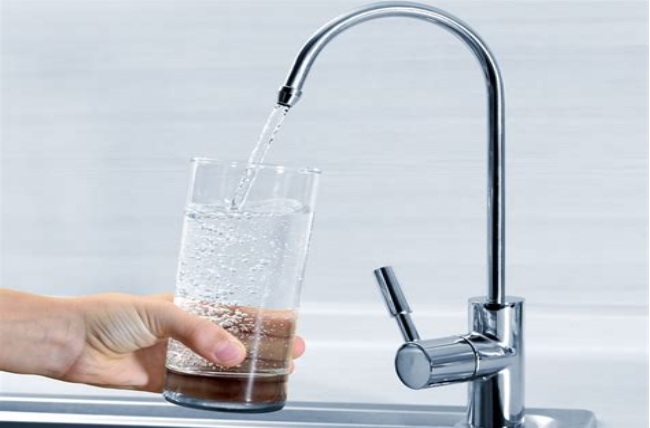No one can deny the importance of water as a natural resource because life wouldn’t be possible without it. Humanity seems to be unaware of its significance, as water pollution has been increasing in the last few decades. It coincides with the development of industry, which is marked as the lead contaminant.
We often neglect our own fault in this crime against nature. Every year, water consumption rises, and pollution gets more and more serious. People are guilty of improper waste disposal, but also of the increased use of chemicals and pesticides. These toxic materials pass through the soil to the water we use every day.
The biggest part of the planet and the human body is made of water. If it is dirty, we have no choice but to make it clean again. People in big cities can’t drink pure water from springs, so they have to use sink water or buy it in bottles.
If you belong to those who doesn’t want to waste hundreds of dollars per month on bottled water (which is probably nothing more than sink water), you’ll be happy with the fact that tap water is not dangerous to health. But you always can improve quality using the filters.
What Kind of Water We Use
Pure water, without taste and smell, is the best refreshing drink, but also an essential nutrient. Drinking the recommended amount of water helps us maintain good health and vitality. Proper liquid intake stimulates digestion, cleanses the organism, and improves blood flow. It also has benefits on our mental health and working ability. That’s why we must pay attention to the quality of the water we use.
Many of us have no choice but to drink tap water. Of course, the water supply wouldn’t allow the transfer of polluted water, but its composition is questionable. Since this water usually comes from tanks, it contains a lot of things that can damage our health.
Chlorine – Is It Safe?
Water suppliers disinfect water before releasing it through the pipe system. They use chlorine or chloramines to remove heavy metals, chemicals, dust, and dirt and to kill micro-organisms. You can read more about the process of chlorination on this link.
Chlorine destroys bacteria and harmful substances from water, as it passes through the pipe system on its way from the tank to the sink. But think about it for a second – if it kills, it’s dangerous, rights? Simply put, water suppliers use one toxin to remove other toxins.
Chlorine is toxic because, otherwise, it wouldn’t be able to eliminate all the stuff from water. And as such, just imagine what effect it will have on us. Besides, this substance reacts with some organic matter from water. Compounds called trihalomethanes are results of this reaction. And some recent studies show these are carcinogenic.
Water Filter Systems for the Entire Household
If you want to permanently solve the problem of water in your household, the whole house filter system is an excellent solution. You’ll probably pay a bit more at first, but it’ll pay off very soon. Health doesn’t have a price, and you certainly don’t want to harm it with dirty water. This system provides you with pure water throughout the entire house, at any time, for drinking, cooking, showering or watering.
How System Works
The systems of the newer generation are small in size, so you don’t need a separate room for them. You can simply put them in a corner of your basement, attic, and even under the stairs. Regular filter systems don’t need power supply. You can use them even in gardens, cottages and mountain houses.
Most water filter systems have pre-filter and main filter. The first one removes big things like sand, dirt and all the larger ‘waste.’ Partially purified water then comes to the main filter, which does additional filtration. Pelican filters, for example, use natural cleansers, such as carbon made of coconut shell, which provide excellent results. It removes most chemicals and dirt particles. The result is cleaner and softer water, of much better taste.
UV Protection in Whole House Water Filter Systems
Water filter systems use technology which has advanced in the last couple of years. Some new properties were added to these mechanisms to improve their performances. For example, a system of extra purification based on UV light.
The water pollution is higher than ever, and sadly, it will be even worse. Bacteria become resistant to chemicals used in water cleansing, so scientist had to find new methods for its filtration. UV protection is a cost-effective and safe way to always have pure water in your home.
Differences between Water Filter Systems with and without UV Protection
The purpose of UV light filter is to destroy what ordinary filters can’t, like waterborne bacteria. This is the main difference between the regular water filter systems and those with UV protection. UV rays work on low wavelength that affect DNA of micro-organisms in water. It prevents them to reproduce – this way, the contamination won’t happen.
This protection is actually an add-on to regular water filter systems. The point is that extra filtration works only for water purified from larger particles. These scraps block UV rays. That’s why water has to pass through the pre-filter. The final step is exposing water to UV light, which is highly effective in the process of decontamination.
And finally, the power supply is another difference compared to conventional whole house water filter systems. UV protection systems need electricity, and this is their only disadvantage. You can’t use them anywhere, unlike the system without UV protection.
The point of water filter systems is to get a long-term solution, especially if you choose a method that doesn’t require a power supply. But you won’t go wrong if you opt for modern systems with UV protection. If you install a water filter system with several years of performance guarantee, the water saving will be significant. Systems with UV protection have low electrical needs, and they are environmental friendly.






